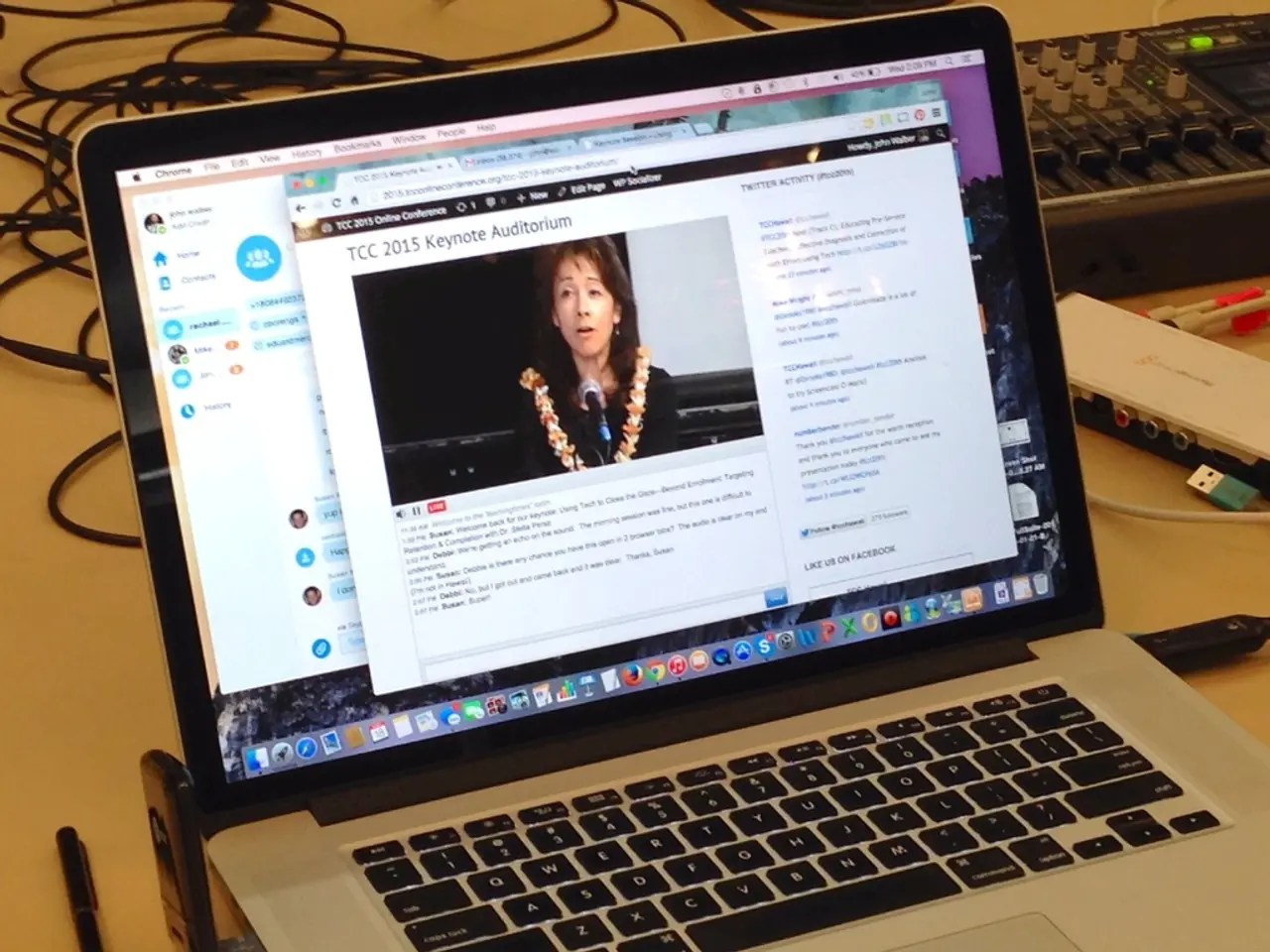Federal and State Officials Tour Electric Mobility Innovations at Hellmann in Bremen
In Bremen, Germany, Hellmann Worldwide Logistics is setting a new standard for sustainable logistics practices, particularly in the realm of heavy goods transport. The company's innovative strategies and operational models are making a significant impact, serving as a beacon for other logistics companies seeking to make their supply chains greener.
**Best Practices and Operational Strategies**
At the heart of Hellmann's approach lies the deployment of an electric truck fleet and the development of a high-performance charging infrastructure. Since 2024, the company has been operating a fleet of electric trucks across Germany, including two 40-tonne electric trucks and plans to add four 16-tonne electric vehicles. A 300 kW charging station with buffer storage enables efficient charging, allowing the trucks to operate in a two-shift system.
Solar power and energy storage solutions are also integral to Hellmann's facilities, enhancing energy efficiency and reducing reliance on external power sources. The company is also expanding its digital capabilities with a new logistics facility in Bremen, focusing on digitalization to streamline operations.
Route optimization and vehicle range are crucial factors in the success of electric vehicles for medium-distance logistics. Hellmann's trucks operate between Bremen and Osnabrück, covering 550 to 700 kilometers per day.
**Funding Sources**
The development of Hellmann's electric truck fleet and charging infrastructure has received significant financial support from the Federal Ministry of Transport. The ministry has provided a total of EUR 1.9 million for this project, demonstrating the government's commitment to sustainable logistics initiatives.
**Challenges**
Despite the progress, challenges remain. Building high-capacity charging infrastructure is a significant hurdle, one that Hellmann has addressed by installing a dedicated 300 kW charging station with buffer storage. Managing truck range and charging times is also crucial, especially for medium-distance routes. Hellmann's intelligent charging concept helps overcome these challenges. Integrating new electric vehicles and charging systems seamlessly with existing logistics infrastructure is another essential consideration for efficient operations.
**Looking Forward**
Hellmann's goal is to gain more operational experience in the field of electric mobility in order to convert its entire fleet to CO2-neutral as quickly as possible. The long-term goal is to strengthen the logistics location Bremen through climate-friendly innovations and make it future-proof.
The discussion at Hellmann in Bremen focused on the trifecta of self-produced solar power, modern storage and charging infrastructure, and electrically operated trucks. Kristina Vogt, Senator for Economy, Ports, and Transformation of the Free Hanseatic City of Bremen, emphasized that decarbonizing heavy-duty traffic is a key component in achieving Bremen's climate goals.
Stefan Borggreve, COO of Hellmann Worldwide Logistics, expressed the company's conviction that electric mobility will be a central pillar of decarbonization in heavy-duty traffic in the medium and long term. The expansion of Hellmann's electric truck fleet and the necessary charging infrastructure is seen as a concrete example of how electric solutions can be successfully implemented.
The German Recovery and Resilience Plan (DARP) and the European Recovery and Resilience Facility (RRF) in the NextGenerationEU program also provide funding for this measure. The Federal Minister of Transport, Patrick Schnieder, underscored the importance of electrifying heavy-duty traffic in reducing CO2 emissions in road traffic.
In conclusion, Hellmann Worldwide Logistics' operations in Bremen demonstrate the practicality of e-mobility in heavy-duty traffic, paving the way for a greener, more sustainable future for the logistics industry.
- The deployment of an electric truck fleet and the development of a high-performance charging infrastructure, such as the one implemented by Hellmann Worldwide Logistics, can have a significant impact in the field of environmental science, contributing to the mitigation of climate-change.
- The integration of technology like solar power, energy storage solutions, and digitalization in logistics facilities, as practiced by Hellmann Worldwide Logistics, can enhance energy efficiency and reduce reliance on external power sources, stepping closer towards a sustainable world.
- The successful implementation of electric vehicles in medium-distance logistics, as demonstrated by Hellmann Worldwide Logistics with their two 40-tonne electric trucks, can disrupt traditional industries like sports, offering innovative and green alternatives for transportation.




